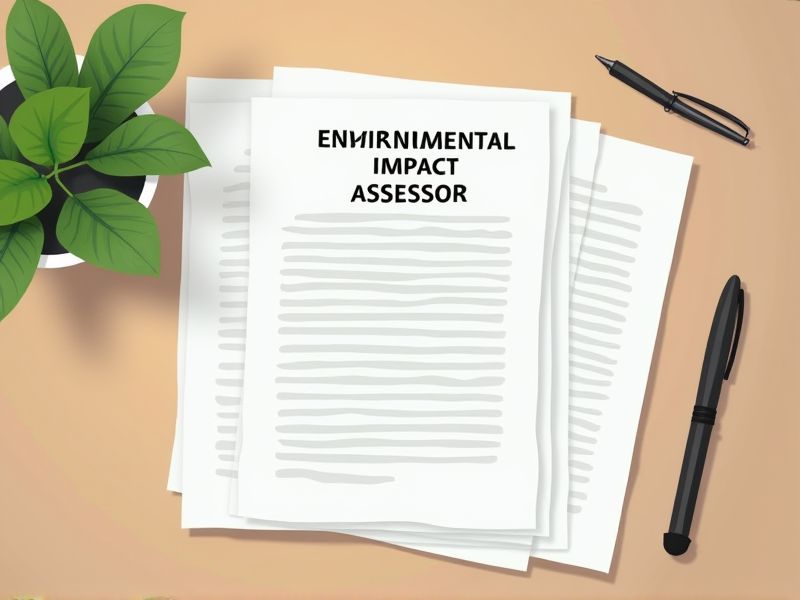
Environmental Impact Assessors play a crucial role in evaluating the potential environmental effects of proposed development projects. Certifications in this field ensure that they possess the necessary expertise to analyze environmental data accurately and make informed decisions. These credentials help align assessment practices with regulatory standards and industry best practices, enhancing the credibility of their findings. Following are some essential certifications required for an Environmental Impact Assessor.
Certified Environmental Professional (CEP)
Certified Environmental Professionals (CEPs) bring expertise that ensures environmental impact assessments are conducted with standardized methods, leading to more reliable and consistent results. Their certification signifies a recognized level of competence and adherence to best practices, which can increase stakeholder trust in the assessment process. Employing a CEP can result in the identification and mitigation of potential environmental risks earlier in project planning, potentially reducing costly delays or legal issues. Their presence often facilitates compliance with governmental regulations, as they are familiar with the latest legal requirements and environmental standards.
Environmental Impact Assessment (EIA) Certification
EIA Certification ensures that an environmental impact assessor possesses the necessary knowledge and skills to evaluate potential environmental effects accurately. This certification establishes credibility and trust, assuring stakeholders that assessments are conducted professionally and ethically. Properly conducted EIAs identify potential risks early, enabling mitigation measures that protect ecosystems and public health. Regulating EIAs through certification also helps maintain consistent standards across assessments, promoting sustainable development practices.
ISO 14001 Lead Auditor Certification
ISO 14001 Lead Auditor Certification ensures a high level of competency in assessing and improving environmental management systems. It provides the necessary skills to effectively identify, analyze, and mitigate potential environmental risks. Organizations recognize this certification as a benchmark for ensuring compliance with international environmental standards. Possessing the certification often results in increased trust and credibility with stakeholders during environmental assessments.
LEED Accredited Professional
LEED Accredited Professionals possess specialized knowledge in green building practices, enabling them to effectively assess environmental impacts during construction projects. Their expertise ensures that projects meet high sustainability standards, reducing resource consumption and minimizing ecological footprints. By understanding LEED certification requirements, they can guide projects toward sustainable outcomes, improving health and environmental quality. Their role significantly influences project success in achieving energy efficiency and sustainable design goals, contributing to long-term environmental benefits.
Certified Environmental Scientist (CES)
A Certified Environmental Scientist (CES) is needed for Environmental Impact Assessment to ensure assessments align with current regulations and scientific standards, as their certification reflects a proven expertise in environmental science. Their presence can enhance credibility and trust with stakeholders, as they are trained to rigorously analyze environmental data. The CES's specialized knowledge allows them to identify potential environmental risks and propose effective mitigation strategies, helping to prevent future ecological damage. Projects managed by a CES often demonstrate improved sustainability outcomes, lessening negative impacts on ecosystems.
Hazardous Waste Operations and Emergency Response (HAZWOPER) Certification
The HAZWOPER Certification equips Environmental Impact Assessors with essential knowledge about hazardous material regulations, crucial for ensuring workplace and environmental safety. Without this certification, assessors may lack the skills to evaluate risks adequately, potentially leading to environmental harm. Specialized training under HAZWOPER ensures that assessors can implement effective emergency response plans during hazardous spills. The certification also validates an assessor's ability to comply with federal safety standards, reducing legal liabilities for their employers.
NEBOSH Environmental Certificate
The NEBOSH Environmental Certificate equips Environmental Impact Assessors with robust knowledge of environmental management principles, enhancing their ability to identify and mitigate potential ecological risks. This qualification aligns professionals with international standards, ensuring comprehensive assessments and reporting accuracy. Employers value the NEBOSH certification for its demonstrated commitment to sustainability practices and legal compliance. Holding this certificate often increases job prospects and credibility within the environmental assessment industry.
Certified Sustainability Practitioner (CSP)
The complexity of assessing environmental impact requires a comprehensive understanding of sustainability principles, which a Certified Sustainability Practitioner (CSP) possesses. Regulations and standards for environmental impact are constantly evolving, and a CSP is equipped to navigate these changes effectively. Stakeholders demand transparent and accountable assessments, and CSPs ensure these assessments align with best practices. Demonstrating expertise through CSP certification enhances credibility with both clients and regulatory bodies.
Site Assessment Certification (e.g., ASTM E1527 Phase I Environmental Site Assessment)
Obtaining a Site Assessment Certification, like ASTM E1527 Phase I, provides environmental impact assessors with the necessary framework to identify potential environmental liabilities associated with a property. The certification ensures that assessors follow a standardized process, thereby increasing the accuracy and reliability of their findings. It also aids in protecting stakeholders from future legal and financial implications related to environmental contamination. The certification enhances the credibility and trustworthiness of the assessment, facilitating informed decision-making for property transactions.
Project Management Professional (PMP)
Project Management Professional (PMP) certification enhances an Environmental Impact Assessor's ability to oversee projects efficiently, ensuring timelines and budgets are adhered to. It introduces standardized methodologies for assessing and managing risks specific to environmental projects. By leveraging PMP principles, assessors can improve stakeholder communication, which is crucial for obtaining project approvals. Through PMP training, assessors gain expertise in resource management, optimizing the use of materials and personnel in environmentally sensitive projects.
Summary
With certifications, you gain enhanced credibility as an Environmental Impact Assessor, attracting more clients and projects. This heightened trust can lead to increased job opportunities and collaborative ventures. Certified assessors often access exclusive tools and advanced methodologies, improving the quality of assessments. These advantages collectively elevate your career growth and professional standing in the environmental field.
